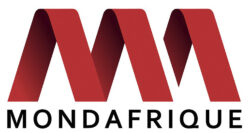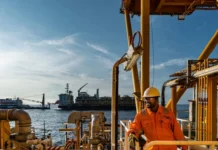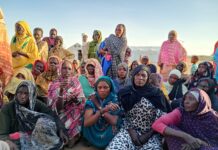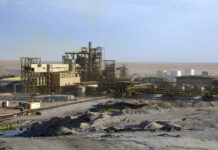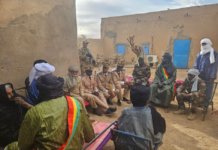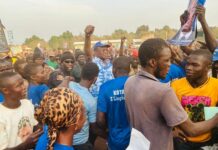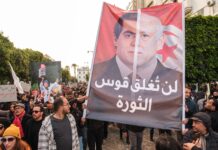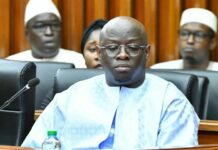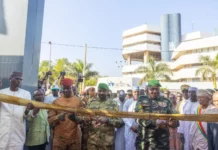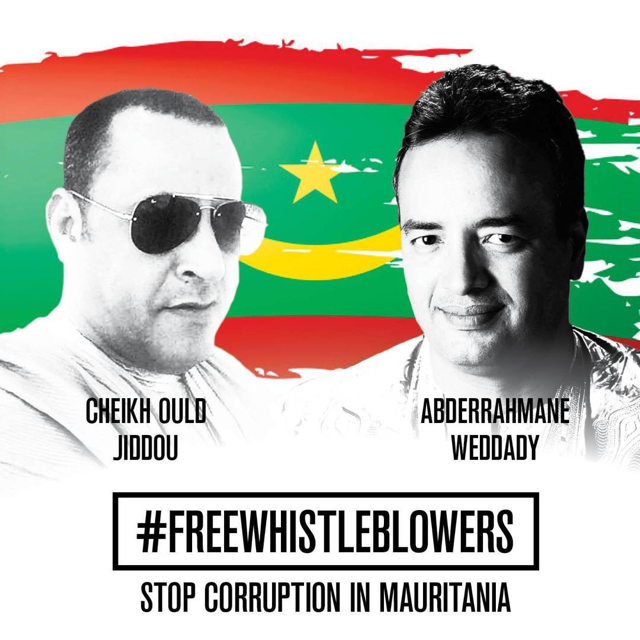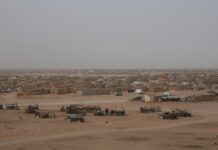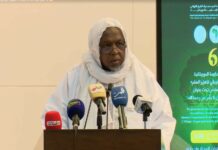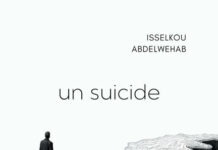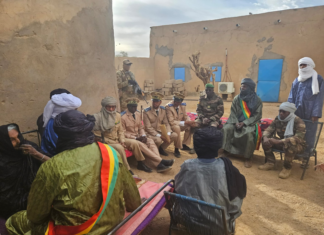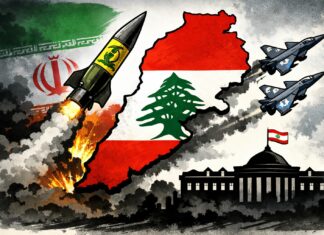Dans le Washington Post du 1er avril, Nasser Weddady, un activiste connu durant le printemps arabe pour son rôle sur les réseaux sociaux, dénonce l’emprisonnement de son frère par le régime mauritanien
Imagine that convicted U.S. investor and scammer Bernie Madoff, who ran America’s largest Ponzi scheme, was protected by the White House. Next imagine that the president was benefiting from the scam and protecting Madoff from prosecution.
This is exactly what is unfolding in the West African nation of Mauritania today. The man who alerted the public to a nationwide fraud is sitting in jail. The alleged scammer is free and is likely being shielded from the law by the nation’s president, Mohamed Ould Abdel Aziz.
This story began three years ago, in January 2016, when my brother, Abderrahmane Weddady, launched a campaign to warn people about a possible swindle. A Muslim cleric was offering to buy real estate at prices 30 to 40 percent above its real market value, thus offering people a quick way to cash in on their homes.
According to my brother’s findings, the scammer, Sheikh Rada Al-Saidy, cultivated a following based on his claim to be a miracle-working holy man. Rada assembled a small army of representatives to seek both real estate properties and buyers. Once they found someone willing to sell, they would make a down payment in cash, then issue an IOU once the deed was transferred, promising payment for the rest over a three-year period, my brother discovered.
Then Rada (or his agents) would find a buyer and immediately flip the property by selling it at 50 percent of its real market price, using the profits to pay off creditors, my brother reported. People flocked to him to sell and buy properties over the past seven years — to the extent that they ultimately drove down real estate prices in Mauritania’s capital, Nouakchott, home to about one-third of the nation’s population of 4.5 million.
My brother Abderrahmane, an entrepreneur by profession, soon got wind of the scam. He was horrified by its economic and social implications. As real estate values plummeted, and with the number of people engaging in this risky practice increasing, Abderrahmane took to his Facebook page, one of the most popular in the country, and launched a relentless 39-month campaign. He published investigative articles that warned of the impending financial and economic catastrophe.
In the process, he came to discover that some of his own relatives had fallen for the swindle, which made him only more determined to pursue it. Despite enormous pressure on him and our family, Abderrahmane kept working to raise awareness.
People gradually began paying attention and asking questions about Rada’s real estate “miracles.” They became more cautious. Fewer and fewer were willing to get involved — which in turn slowed the entire operation. By the end of 2018 the bubble had burst. Rada took to WhatsApp to announce a halt to all transactions, then promised to pay back all his creditors as soon as possible.
It’s estimated that more than 7,000 Mauritanian families have been affected by the scam. Abderrahmane estimated the total value of the deals involved at $200 million. Two weeks ago, shots were fired at Rada’s compound as angry creditors demanded their money back. Victims have been protesting in the streets of Nouakchott for months.
Sadly, the Mauritanian government never acted to stop the fraud. In fact, the finance minister publicly stated in response to a question from local media that “no laws were broken.” The question referred to documents published by my muckraking brother on his Facebook page showing that President Aziz’s family had directly benefited from the swindle. That may explain Rada’s remarkable impunity.
As pressure mounted, Aziz, who is a disciple of the sheikh, decided that he had had enough of my brother, a staunch critic of official corruption. On March 22, the police arrested Abderrahmane and his fellow blogger, Cheikh Ould Jiddou, on trumped-up charges of slander.
Some Mauritanians have a theory about the president’s involvement in the affair. Since Aziz is supposed to leave power at the end of his second term in June after failing to amend the constitution to remove term limits, he may be attempting to move his fortune overseas to escape any future accountability. The World Justice Project Rule of Law’s 2019 Index ranksMauritania’s government No. 122 out of 126 nations that adhere to the rule of law. Transparency International gave Mauritania a score of 144 out of 180 in its Corruption Perceptions Index.
Two decades of studying the Arab region have taught me that corrupt leaders who plunder their nations’ wealth are the main drivers of instability there, sending waves of migrants and refugees out into the rest of the world. It is imperative that they be held accountable by the international community. High-level corruption invariably leads to yet another imploding nation incubating violence and extremism. The international community should take action before Mauritania embarks on that path. A first step would be for us all to demand the immediate release of Abderrahmane Weddady and Cheikh Ould Jiddou.
